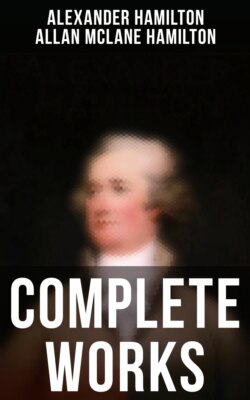Читать книгу Complete Works - Hamilton Alexander - Страница 25
На сайте Литреса книга снята с продажи.
ОглавлениеAppendix F
Table of Contents
(PAGE 83)
THE INFLUENCE OF HAMILTON'S WORK IN SOUTH AFRICAN UNIFICATION.
SIR WALTERHELY-HUTCHINSON, late Governor of Cape Colony, wrote to the author in January, 1910, as follows:
"When South African Union first seemed to be coming within the range of practical politics, and it began to be generally discussed as a possibly practical issue -- about four years ago -- it soon became evident that, apart from questions of racial difference and of 'native' policy, the main point as to which opinions differed was whether the union should be on a basis of federation, or of unification -- whether the existing colonies should be treated as separate States, retaining their own governments and legislatures; or whether the South African Union, with legislatures deriving their powers from the main government or parliament; whether the main government should be entrusted with certain specific duties and powers, the State governments to possess the rest -- or whether the provincial governments should be entrusted with certain specified duties and powers, the Union Government to possess the rest. As you know, the result of the Convention proceedings, as ratified by the British Parliament, has been 'unification with safeguards.' The whole of the power, in the ultimate resort, being in the hands of the Union Government and Parliament, the provincial governments and councils being, however, entrusted with certain specified powers and duties of which they cannot be deprived, either in whole or in part, without certain special proceedings which are intended to prevent any modification of the Constitution by anything like a scratch vote, or by bare majorities.
"Those of us who had been thinking over the subject of union for many years, and had no special interests, pecuniary or otherwise, to bind us to any particular locality or colony in South Africa, had made up our minds that the ideal form of union for South Africa was unification -- but when union became the subject of public discussion, and it began to look as if union, in one form or another, might possibly come about, a considerable feeling in favour of federation and maintenance of State rights arose. I need not go into the motives which underlay this feeling -- they were partly sentimental, partly racial, partly pecuniary. Enough to say that the feeling, in many quarters, was strong, and was so articulate that it seemed even stronger than it probably really was -- and it did look, at one time, as if federation, not unification, might carry the day.
"People in official positions, like myself, could do nothing in public -- but, fortunately, some of the leading men in politics, and the ablest of them, especially Botha, Merriman and Smuts, were convinced unificationists, and used all their influence in favour of unification and a band of clever young Britishers, foremost among whom were Patrick Duncan, Lionel Custis, Philip Kerr, and others, devoted themselves to a regular propaganda, in favour of unification. Closer 'Union Societies' were formed all over South Africa. The unificationists went about, so to speak, with a copy of Alexander Hamilton's 'Life' in one pocket, and a copy of the Federalist in the other, preaching unification, and advising their friends to read, before making up their minds against unification, about the birththroes of the Constitution of the United States; and to note Hamilton's words of wisdom both as to the weakness likely to arise from over-assertion of State rights, and as to the folly of rejecting a Constitution which was, of necessity, a compromise, merely because some of its provisions did not square with one's own particular or particularist views.
"As the result, the 'Life' was widely read, and the Federalist was considerably studied. In conversations about the draft Constitution, you would often hear, "I suppose you have read the "Life" of Alexander Hamilton?' 'Oh, yes!' 'And the Federalist?' 'Well, I've studied it a good deal.' . . .
"I am, of course, far from saying that the study of your grandfather's life brought about unification, but there is no doubt that it was one of the influences which materially contributed to that end."
